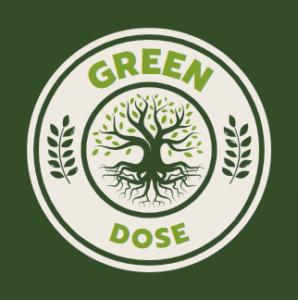In the ever-accelerating world of biotechnology, the idea of human or animal cloning once sat firmly in the realm of science fiction. Today, however, cloning is no longer just fodder for dystopian novels or Hollywood blockbusters. With advancements in genetic engineering and stem cell research, the phrase clones for sale is gaining traction—not just as a provocative headline, but as a reality in specific scientific and commercial circles.
Understanding Cloning: Science at Work
Cloning refers to the process of creating a genetically identical copy of an organism. There are three main types of cloning: gene cloning, reproductive cloning, and therapeutic cloning. The most publicized is reproductive cloning, which involves creating an organism that shares the exact genetic makeup of another. In 1996, the birth of Dolly the sheep marked a pivotal milestone in this area, proving that it was possible to clone a mammal from an adult somatic cell.
Fast-forward to today, and cloning techniques have advanced significantly. Several companies now offer animal cloning services, mainly for pets and livestock. Individuals grieving the loss of a beloved dog or cat can pay tens of thousands of dollars to receive a genetic replica. In agriculture, prize-winning cattle, horses, and even camels have been cloned to preserve elite genetics.
While no company legally sells human clones, the technology theoretically exists to make it possible. The idea of “clones for sale” in the human context stirs up powerful ethical debates and intense regulatory scrutiny.
Cloning in the Marketplace
Commercial cloning, especially of pets, is already a thriving niche market. Some companies offer cloning of cats, dogs, and horses for clients willing to pay steep prices. This process usually involves harvesting DNA from the original animal, inserting it into a donor egg that has had its nucleus removed, and then implanting the embryo into a surrogate.
For livestock, cloning is used to preserve the genetic traits of high-yield animals. Although cloned animals are typically not directly used for food, their offspring often are. Regulatory agencies in several countries have deemed meat and milk from the offspring of cloned animals safe to consume.
Cloned plants are also widely available and have long been a staple in agriculture. Bananas, apples, and many types of grapes are clones, cultivated for their uniformity and predictable quality.
However, moving into human cloning is a line few are willing—or legally able—to cross. Even though advancements in induced pluripotent stem cell research and somatic cell nuclear transfer (SCNT) suggest that human cloning is biologically feasible, the ethical, legal, and philosophical hurdles remain immense.
Ethical and Legal Implications
The concept of selling human clones or creating them for commercial purposes raises profound ethical questions. Would a cloned human have the same rights as a naturally born one? Could cloning be misused for exploitative labor, military purposes, or organ harvesting? These are not hypothetical concerns but pressing dilemmas that ethicists and lawmakers grapple with.
Religious institutions, bioethics organizations, and most governments currently oppose human reproductive cloning. Many countries have laws banning the practice outright. International agreements like the United Nations Declaration on Human Cloning urge member states to prohibit it, citing concerns over human dignity, identity, and individual rights.
Moreover, there are significant medical risks. Cloned animals often suffer from developmental issues and shortened lifespans. Transposing these risks to human cloning introduces moral hazards that many scientists deem unacceptable.
The Allure of Cloning
Despite the concerns, the allure of cloning remains potent. For some, it represents the ultimate technological control over life. The idea of replicating a deceased loved one, preserving a particular set of talents, or even attaining a form of immortality is deeply tempting. Others see cloning as a powerful tool for medical research, potentially allowing for personalized therapies and regenerative treatments using a patient’s own DNA.
Entrepreneurs see opportunity in the commercialization of cloning technologies, especially in agriculture and pet industries. As cloning becomes more accessible and affordable, its prevalence in these sectors is likely to increase.
The Future Outlook
So, what does the future hold for clones for sale? The answer largely depends on how society chooses to navigate the intersection of science, commerce, and ethics. While pet and livestock cloning is becoming normalized in some circles, the idea of human clones entering the marketplace remains largely taboo—and perhaps rightfully so.
As biotechnology continues to advance, the lines between possibility and propriety will become increasingly blurred. Whether society accepts the selling of clones as a natural extension of scientific progress or as a boundary that should never be crossed will define not just the fate of cloning, but the essence of what it means to be human.
